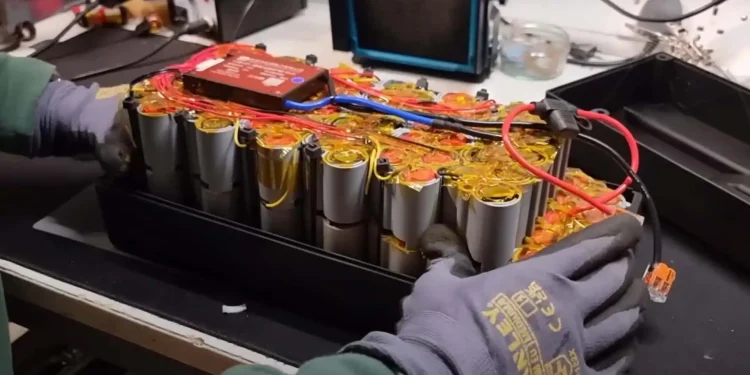We live in an age of rampant consumerism, accompanied by a worrying increase in waste. From disposable plastics to single-use electronic devices, modern society has become an expert at creating waste. But what if what we discard could be given a new lease of life?
That’s exactly what British electrical engineer and YouTuber Chris Doel has proved by turning an environmental problem into a practical solution: creating a functional battery for an electric bicycle (e-bike) from discarded vapes.
The problem of disposable vapes
Disposable electronic cigarettes, or vapes, have become extremely popular, but they are also responsible for a worrying increase in electronic waste. Each unit contains a rechargeable lithium battery, but manufacturers prevent the reuse of these batteries, leading to millions of still-useful devices being discarded every year.
In the UK, an estimated 260 million disposable vapes are thrown away every year. This represents a huge wasted opportunity, as the batteries in these devices retain much of their useful life intact.
Chris Doel’s idea
Chris Doel decided to explore the hidden potential of these discarded devices. During a music festival, he collected hundreds of abandoned vapes and turned them into the raw material for an ambitious project: to create a high-capacity battery for an e-bike.
With 130 batteries taken from the vapes, he managed to assemble a 48-volt unit, enough to power an electric bicycle. The process involved the use of 3D printed modules to organize the battery cells, as well as careful management of the electrical connection. The only component purchased was the battery management system (BMS), which drastically reduced the cost compared to a new battery.
The battery Chris built powered his e-bike for 33 kilometers without the need to pedal, a performance on a par with many electric bikes on the market. In pedal assist mode, the range could easily double.
Chris also highlighted another waste problem: vape casings, often made of recyclable aluminum, are also discarded. According to the engineer, the amount of aluminum collected could even be used to make bicycle frames.
System shows consumerism
Chris’s project clearly exposes the flaws in the current system of production and consumption. He has shown that the batteries used in vapes have the capacity for around 300 recharge cycles, but are discarded after just one use. Following his approach, it would be possible to produce two million e-bike batteries every year, just from the volume of vapes discarded in the UK.
The reality, as Chris explains, is that products are deliberately designed to be disposable, allowing manufacturers to maximize profits while ignoring the environmental impact.
What can we do?
Although projects like Chris Doel’s are inspiring, the solution to the problem of waste requires profound changes. The transformation begins with more conscious consumers and companies taking responsibility for creating sustainable products.
It’s not necessary to adopt a totally waste-free lifestyle, which is difficult to achieve for many. However, being more critical of our consumption choices and more proactive in reusing what we discard can make a significant difference.
Chris Doel’s work is a clear example of how today’s waste can be transformed into tomorrow’s treasure. All we need is ingenuity, creativity and the will to change the course of waste.








